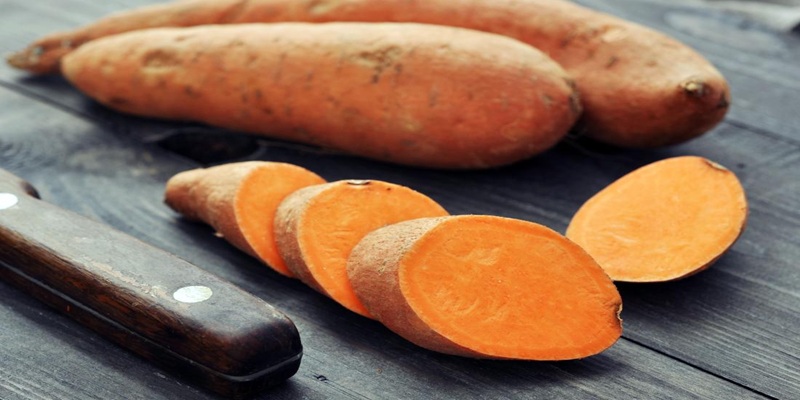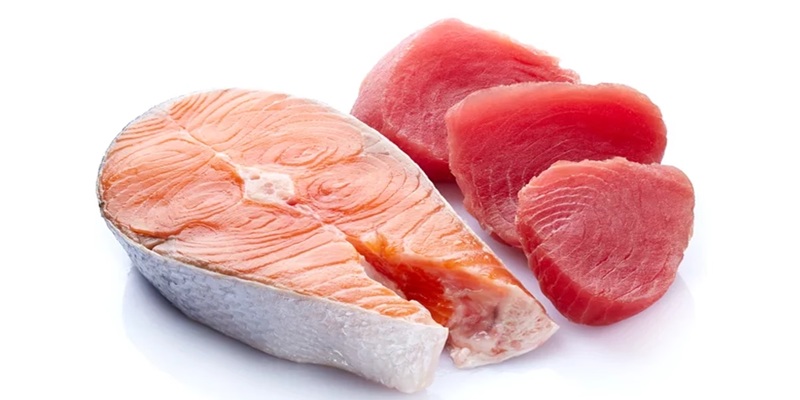Top 10 Potassium Rich Foods You Shouldn't Miss
Potassium supports muscle function, nerve signaling, and heart health while lowering blood pressure and preventing kidney stones. Since our bodies can't produce it, consuming potassium-rich foods is essential. This article explores what foods are high in potassium and highlights the top 10 potassium rich foods to enhance your diet.
Potassium supports muscle function, nerve signaling, and heart health while lowering blood pressure and preventing kidney stones. Since our bodies can't produce it, consuming potassium-rich foods is essential. This article explores what foods are high in potassium and highlights the top 10 potassium rich foods to enhance your diet.
What Is Potassium?
Potassium is a vital electrolyte that regulates fluid balance, supports muscle contractions, and ensures proper nerve function. It is primarily found in fruits, vegetables, and legumes and is easily attainable through a balanced diet. The recommended daily intake varies by age, with adults needing 2,500–3,000 mg and children requiring 2,000–2,800 mg.
Deficiency can cause muscle weakness, cramps, fatigue, and, in severe cases, irregular heartbeats. Conversely, excessive potassium intake, often from supplements, may lead to hyperkalemia, a serious condition affecting heart function. Maintaining balanced potassium levels is essential for overall health and wellbeing.
1.Bananas
Bananas are among the most popular and well-known sources of potassium, offering approximately 422 mg of potassium per medium-sized fruit. This essential mineral is crucial for muscle function and nerve signalling, which makes bananas a favoured choice among athletes for post-exercise recovery. Furthermore, potassium plays a significant role in regulating blood pressure by balancing sodium levels. Regularly consuming bananas not only supports heart health but can also aid in preventing hypertension, making them a convenient snack and a wise dietary choice for enhancing overall health.
2.Sweet Potatoes
Sweet potatoes are a nutritious powerhouse, containing approximately 540 mg of potassium per medium-sized serving. Their versatility makes them a great addition to any meal, while their wealth of vitamins A and C, fibre, and antioxidants provides various health benefits. Sweet potatoes can be prepared in numerous ways: whether roasted, mashed, steamed, or baked, each method maximizes their nutritional value. The natural sweetness of sweet potatoes lends them to appeal in a wide variety of dishes—ranging from savoury to sweet—enriching both flavour and nutrition in your meals.

3.Spinach
Spinach is an excellent leafy green with an impressive potassium content of roughly 839 mg per cooked cup. In addition to being a potassium-rich food, spinach boasts high levels of vitamins A, C, and K, alongside minerals such as iron and magnesium, all contributing to robust health. Incorporating spinach into meals is a breeze—whether blended into smoothies, sautéed as a savoury side dish, or tossed into fresh salads, this versatile vegetable elevates nutrient intake while enhancing the depth of flavour in your dishes.
4.Avocado
Avocados are not only creamy and satisfying but also a fantastic source of potassium, providing around 485 mg per medium-sized fruit. Beyond their potassium content, avocados are rich in healthy monounsaturated fats, contributing to heart health. A few easy ways to enjoy avocados include making guacamole, adding slices to salads, or spreading them on whole-grain toast. They can also be incorporated into smoothies for an added nutritious boost, making them an essential feature of a balanced diet.
5.Potatoes
Both white and red potatoes deliver a substantial amount of potassium, with a medium potato containing about 620 mg. Potatoes are versatile and can be cooked in many ways; however, steaming, baking, or microwaving methods are recommended to retain their potassium content. It is advisable to avoid boiling potatoes, as this method can significantly reduce their potassium levels due to leaching into the cooking water, making proper cooking techniques crucial for maximizing their nutrient value.
6.Tomatoes
Tomatoes, a staple worldwide culinary tradition, provide about 292 mg of potassium per medium fruit. They are low in calories and packed with essential vitamins, including vitamins C and E, and lycopene—an antioxidant associated with numerous health benefits. Deliciously versatile, tomatoes can be enjoyed in salads, sauces, or fresh salsa. Their vibrant flavour adds a refreshing burst to meals, making them a tasty choice and a nutritious addition to your diet.
7.Oranges
Oranges are a popular snack and deliver approximately 237 mg of potassium per medium-sized fruit. Additionally, they are well-regarded for their high vitamin C content. To reap the potassium benefits from oranges, consider juicing them for a refreshing beverage or adding segments into salads for a burst of citrus sweetness. They also serve delightfully as a natural sweetener in various recipes, enhancing flavour and nutritional content.
8.Legumes (Lentils & Beans)
Legumes, including lentils and various beans, are fantastic sources of potassium, with lentils containing about 365 mg per cooked cup and kidney beans offering approximately 607 mg. Furthermore, legumes are rich in protein and fibre, promoting digestive health. Make hearty chilli or lentil soup, or add beans to salads to increase potassium intake. These nutrient-dense foods provide a satisfying protein source while contributing to your meals' overall satiety and nutritional density.
9.Fish (Salmon & Tuna)
Fish like salmon and tuna provide a generous serving of potassium, with salmon offering around 628 mg per fillet. Additionally, these fish are packed with essential fatty acids that benefit both heart and brain health. Including fish in your diet can be simple; try grilling or baking it with herbs and spices for a delicious, nutritious meal that benefits your overall health.

10.Pumpkin
Pumpkin is more than just a seasonal favourite; it contains about 564 mg of potassium per cooked cup. Bursting with fibre and essential vitamins, pumpkin promotes digestive health and wellbeing. To enjoy pumpkin's versatility, consider adding it to soups, smoothies, or baked goods. Furthermore, roasting pumpkin can yield a delectable side dish, making it an exciting way to enhance your potassium intake beyond the typical pumpkin pie.
How To Incorporate Potassium-Rich Foods In Your Diet
Effective meal planning is essential to meeting your potassium needs. Start by including potassium-rich foods in every meal and snack throughout the day.
Breakfast: Enjoy a smoothie with bananas, spinach, or oatmeal topped with avocado and kiwi.
Lunch: Try a salad with sweet potatoes, chickpeas, and tomatoes or a quinoa bowl with black beans and bell peppers.
Dinner: Opt for roasted salmon with baked potatoes and broccoli or stir-fried tofu with bok choy and snap peas.
Snacks: Choose dried apricots, cantaloupe, or guacamole with whole-grain crackers for a nutritious boost.
Variety: Incorporate oranges, avocados, lentils, and peas to maintain a nutrient-rich, flavorful diet.
Elevate Your Diet With Potassium-Rich Foods
Potassium is essential for blood pressure regulation, muscle function, and nerve activity. Incorporating potassium-rich foods like bananas, sweet potatoes, and spinach enhances nutrition and health. Experiment with these foods in your meals, and consult a healthcare professional for personalized dietary advice to achieve optimal wellness.